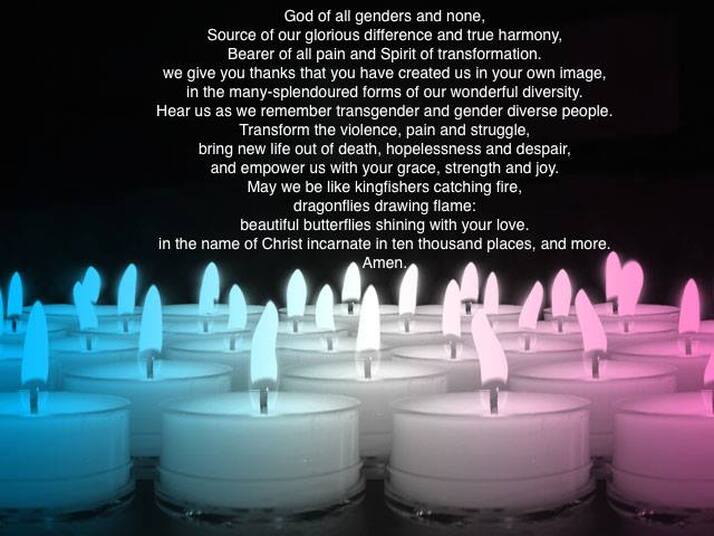 This year, the #TransDayOfVisibility falls on the date of Easter (in the Western Church), which is a happy connection for some of us, in light of what trans folk can bring to understanding resurrection, not least as transformation. One of the first prayers I wrote for a transgender occasion was this one for instance - which seems particularly appropriate in this Holy Week - drawing on one of the great priest-poet Gerard Manly Hopkins' poems. It speaks of the power of love to transform us all, enabling us truly to 'selve' (as Hopkins put it), and to flame out 'like shining from shook foil' (as Hopkins put it in another poem). So, however they keep trying to crucify some of us, may trans people so flame out and shine, this Sunday and always.
0 Comments
As part of our continuing commitment both to Walking Together with First Nations Peoples and to inter-faith relations, it was particularly good to come together on the International Day of Peace this year to receive and affirm the Uluru Statement from the Heart, including the Voice to Parliament. Not least we were blessed with Charles Prouse, author of One the Voice to Parliament, and a Nyikina man from the Kimberley, Western Australia, with over 20 years' experience in Indigenous affairs across Australia. My own words on this occasion, including my video version of a keynote prayer for all faiths can be found below...
A Prayer of Blessing for LGBTIQ+ Celebrations
by Josephine Inkpin, written for Sydney Mardi Gras 2022 Kaleidoscopic Spirit, You dance among us in a glorious riot of expression, embodying afresh the generous love of Jesus, and all who have embraced love at the heart of being. Bless all who gather at this time to celebrate the gifts of sexual and gender diversity. As you have inexhaustible pride in your rainbow children so may we have such life-bearing strength in ourselves and in one another. Touch our lives and bodies with your transforming Love, shining light where there has been darkness, bringing healing where there has been hurt, and making visible what has hitherto been invisible. Inspire us to deeper intimacy and interconnection, opening up the closets of all that remains damagingly repressed, and leading us along fresh pathways of hope to a more joyous and glittering future for us all. 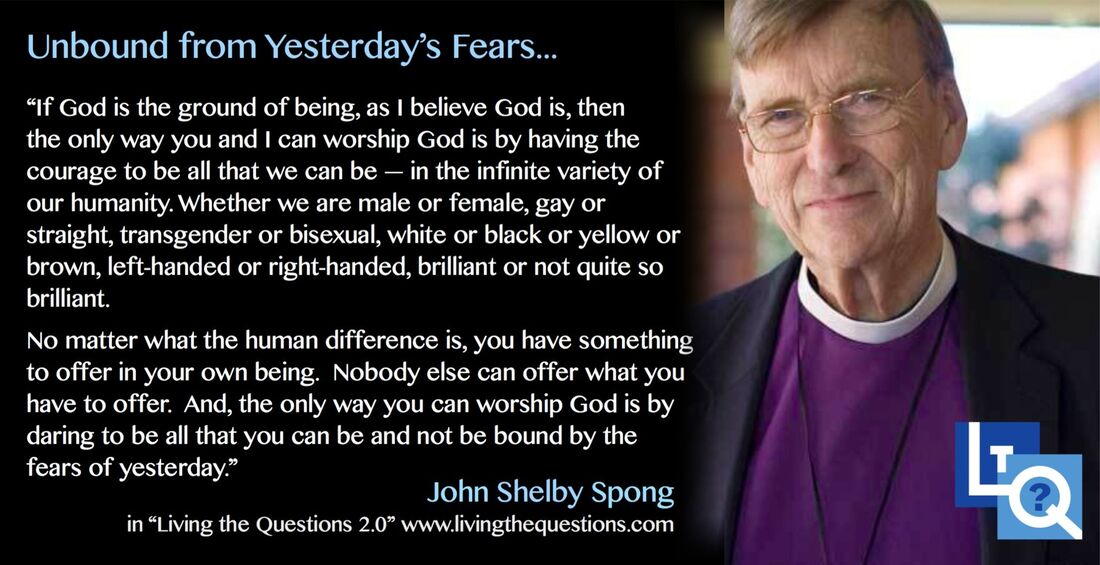 Dare to be indeed. The first time I heard Jack Spong speak was in October 1992 in Methodist Central Hall in London - at the launch of Elizabeth Stuart's then highly controversial landmark LGBT+ prayer book 'Daring to Speak Love's Name: A Gay and Lesbian Prayer Book'. They were historic and testing times. Two weeks later, after our long struggles, the Church of England would finally vote for women's ordination but opposition to queer people was so much more intense. I'd traveled down from Gateshead in England's north east for the occasion, and was one of 300 or so queer people and allies who shared in what was a powerful and moving show of solidarity titled ''Prayer, Protest, Politics: A Celebration of Who We Are and Our Relationships.'' The evening featured an informal blessing of queer relationships, prayers and recitation of a ''Declaration of Coming Out,'' as we danced, cried and hugged together. Helped not least by negative remarks by the then Archbishop of Canterbury, George Carey, SPCK, the intended publisher, had pulled the plug on the book. Thankfully however, Hamish Hamilton Ltd (part of Penguin) stepped in at the last minute and the book thus defiantly and joyfully came to birth (more on the story here). Whilst other Church leaders ran from the fray, or hid behind kindly but insufficent words, Bishop Spong stood on the stage that evening and shared his own commitment as true ally. Those kinds of actions matter. I'm grateful to him for many other ways in which he helped set people free from fears into new life. As much as as his words, such actions however really stay with me. In his death, as in his life, he continues to ask us, where are you when life and history is to be made and shown? Dare we continue to speak love's name when and where it is needed? #deedsnotwordsalone Quite frequently I’m asked about fresh versions of the prayer Jesus taught his disciples - due to concerns for some such as patriarchal/parental or other distancing sounding words, issues about forgiveness (not least after church abuse revelations) and so on. I’ve suggested alternatives but have also just had another go at a contemporary paraphrase - also as a contribution to the Pitt St Uniting Church journey. Maybe it is also of some use to some others?
NB I do also value agreed ecumenical texts (!) and also warmly commend the practice, which I learned in ecumenical work, of inviting a diverse group to pray the prayer taught by Jesus in their own words and language - hearing such prayer in Aramaic for example, is particularly moving. One of the gifts I was given during my time as General Secretary of the NSW Ecumenical Council was a small seven branch candelabrum, from the Indian Orthodox community in Sydney. I love it for many reasons: not least as it helps me recall something of the wonderful life and faith of Indian Christianities and cultures; since it reminds me of the inheritance and shared values which Christianity owes to Judaism; and because it is such a beautiful item for life. for all For light is such a vital symbol for spirituality in so many different forms and context, and, In our current COVID-19 crisis, this is a particularly lovely thing to explore. Within the Orthodox and Catholic (including many Anglican) traditions of Christianity lighting of candles is certainly a very life-giving established form of prayer. As the Greek Orthodox Archdiocese of America expresses it: 'Upon entering an Orthodox church, for example, it is customary to light candles and offer prayers for one’s personal needs or that of a family member or friend. Candles are lit before icons as a sign of one’s faith and hope in God’s help. .. By lighting a candle and offering a prayer, one enters into closer contact with the Church and her ministry to the faithful, invisibly warming the soul by the visible light of the candle.' See further, and for an opportunity to light a virtual candle here. In my case, I often like to use my candelabrum to bless the classic seven directional dimensions of my life and world: north, south, east, west, beneath, above, and within. In doing so I can remember particular people or aspects of life. At this time for example, when I light one candle I hold in prayer, and offer intention, for those in the northern hemisphere, including those in Italy, Spain and the USA, who have been so badly affected by the coronavirus, and my family and native land in the UK. Praying for what is beneath me similarly enables me to recall the land of which I am a part, and the first nations of the place where I now live. Lighting a candle and praying for/with that which is above can also be a way of connecting with the greater universe and the powers which create, sustain and evolve within it. Working through the different directions thereby connects me more deeply with all that is, transforming my own little consciousness in the so much bigger and richer tapestry of all. Whether you, or those you know, draw on traditional pathways of spirituality or not, praying in similar ways with candles might be a helpful aid in our COVID-19 days? Here, below, is my wife Penny Jones using our candelabrum in a brief prayerful reflection for her YouTube series for Milton Anglicans... 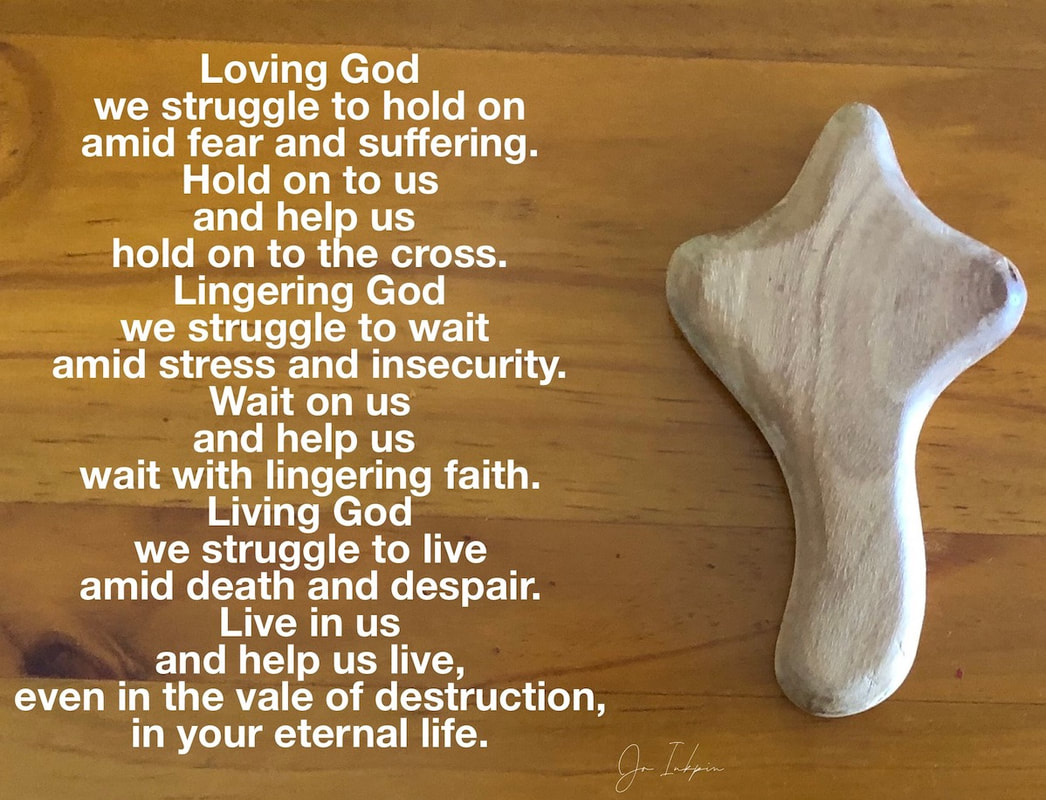 Although aspects of Christian tradition have been devastating for physical love and comfort, the Jesus' story resounds with affirmation of the goodness of life, materiality and the senses. Touch is central to so many Jesus, and other holy, encounters. The body is not at all to be shunned. Rather it is, literally and spiritually, to be fully embraced, as a place where God is 'incarnate' (made flesh) among us. Of course, as with other aspects of life, there can be issues with use of the body, and its abuse by others, but it is fundamentally a beautiful, good, and loving gift of God. This is expressed in the very embodied nature of so much Christian sacramentality and liturgical action, including the sharing of the Peace and laying on of hands. One of the saddest things for many people right now, particularly those who are most isolated and/or lonely, is the further radical distancing of touch. The following prayer is thus partly a contribution to expressing this and finding other spiritual connection. It uses the practical tool, and embodying symbol, of the holding cross, which many people find helpful at times of stress, illness and loss. When we are unable even to speak due to pain, clasping such a spiritual aid can be life-giving and a means of receiving vital grace and strength. Even when others cannot hold us, we can ask for God's love to do so, and allow it to flow through us. In writing this prayer, the word 'lingering' came particularly to mind. It is less conventional than other descriptors of the divine but maybe especially evocative for these times. Perhaps, not least when church buildings and traditional elements are closed or silent, God is often among us as a more lingering presence, more like a whisper than a roar? That is also to affirm a more enduring reality than the 'signs of wonders' of much conventional religiosity. I offer it anyway as part of my prayer, in solidarity with others from whom I am currently physically apart. Do you have a holding cross? Could you perhaps make one, or more, for yourself and/or others? As I wrote this prayer I was particularly reminded of the late Sister Angela - the extraordinary Franciscan nun, mystic and sculptress/artist - whom I met years ago in Stroud in New South Wales. She taught me how to make my own wooden holding cross. I also give thanks for Les Rub, a beautiful friend and faith companion in Toowoomba, who has made so many holding crosses for others, distributed as a ministry to those in need in hospital, at home, or elsewhere. May such expressions of love, like this prayer, continue to hold and strengthen us and others, this day and always: Loving God we struggle to hold on amid fear and suffering. Hold on to us and help us hold on to the cross. Lingering God we struggle to wait amid stress and insecurity. Wait on us and help us wait with lingering faith. Living God we struggle to live amid death and despair. Live in us and help us live, even in the vale of destruction, in your eternal life. How do we speak, act, and spiritually enact, in contexts where many received spiritual & religious patterns are either redundant or, largely, irrelevant? Partly, I think, it is simply to live/‘be’ in the ‘absence’, but it may also prompt us to some fresh exploratory expression (hello ‘via creativa’ my old friend 🙏😻).
This prayer below is one of a number I’ve written for this particular Holy Week - prompted by the way in which much of received religion is (even more) sidelined by the current crisis. The prayer responds to the current inability of Christians, liturgical tradition-wise, to re-enact the great subversive work of Jesus in washing others feet - though this is so vital in many ‘secular’ activities of health care, welfare and justice at this time. Instead, I offer words and images pointing to a deeper sacramentality - reflected in those current vital works of mercy, but also in the simple act, required of us at present, to wash our own hands attentively. The current crisis may further add to some institutional religious problems but perhaps it can most encourage us to recognise, practice,and nurture a much, much, deeper and richer sacramentality and solidarity, together with necessary silence and solitude/withdrawal. That, for me, is part of what Jesus was about, and what might still be valuable in the Christian ‘Holy Week’. There’s a lot of washing going on right now, and much inner and societal washing needed - maybe, if spiritual and ‘religious’ practice means anything in our day, we can be a little intentional about it? After all, Pilate famously washed his hands too, so how and why we do what we do makes a difference... ❤️🦋 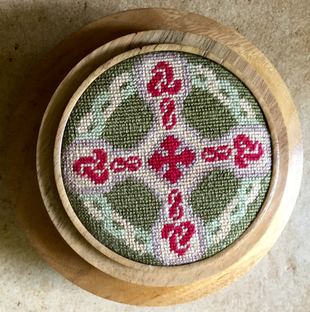 Yesterday I was given a marvelous gift from a remarkable artist of both life and embroidery. This is a person of great grace and determination who, little known to most people, was a courageous female pioneer in her field of work, also engaging with Indigenous people in other places long before it was 'fashionable' (if it ever has been in a positive sense). At the same time, she has been an amazingly skilled and prolific needlewoman, whose creations, soaked in prayer and deep reflection, richly adorn not only much of the parish of St Luke Toowoomba but many other places besides. I was overwhelmed by the generosity of this gift and also the beauty, skill and insight which has gone into it. For as my blessed benefactor put it, in an accompanying card: Traditionally the needlepoint group gave a piece of needlepoint to outgoing priests from this parish. This continues that practice. It was worked with care and consideration in in appreciation of all you have done in the parish and community. The four arms of the cross symbolise the outreach in all directions. Celtic knot work has no beginning or ending but one has to start somewhere - so in your new position may that outreach continue. On the eve of the feast of St Hilda of Whitby, it is hard to express the Celtic Christian call to mission better, in a medium so resonant of Celtic spirit. I feel richly blessed. |
AuthorJo Inkpin is an Anglican priest serving as Minister of Pitt St Uniting Church in Sydney, a trans woman, theologian & justice activist. These are some of my reflections on life, spirit, and the search for peace, justice & sustainable creation. Archives
July 2024
Categories
All
|
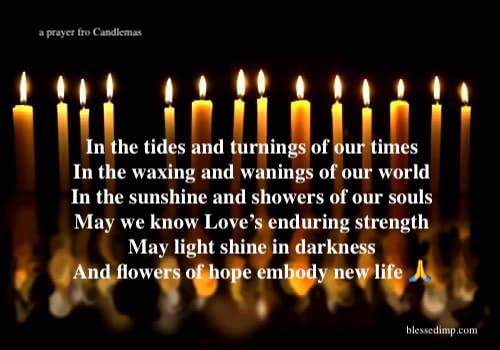
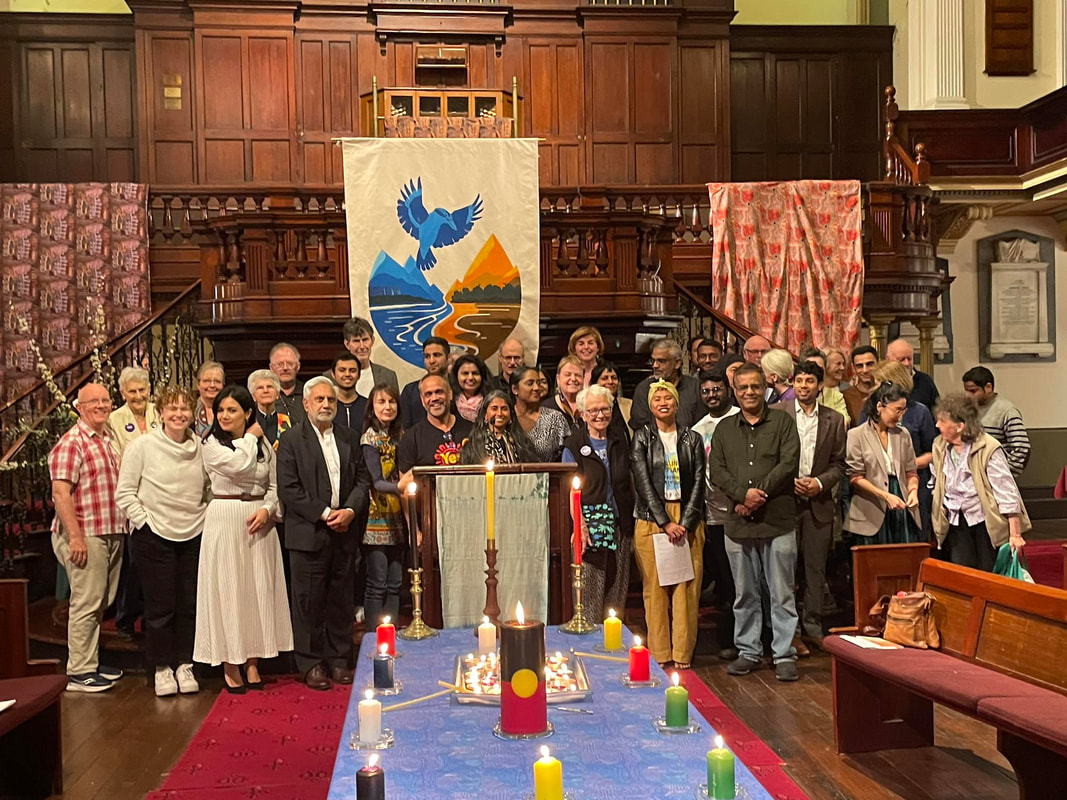
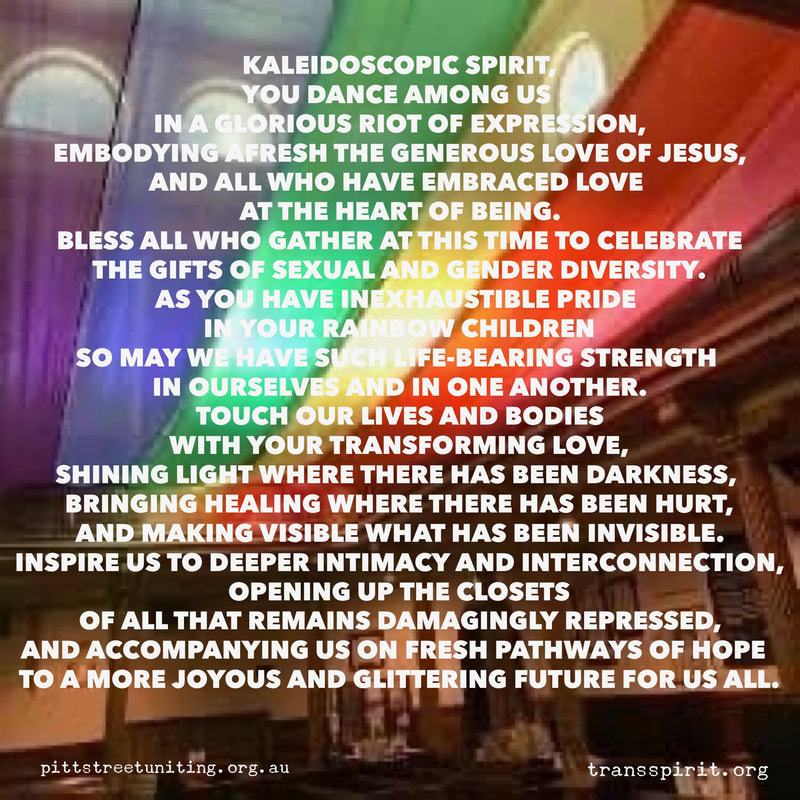
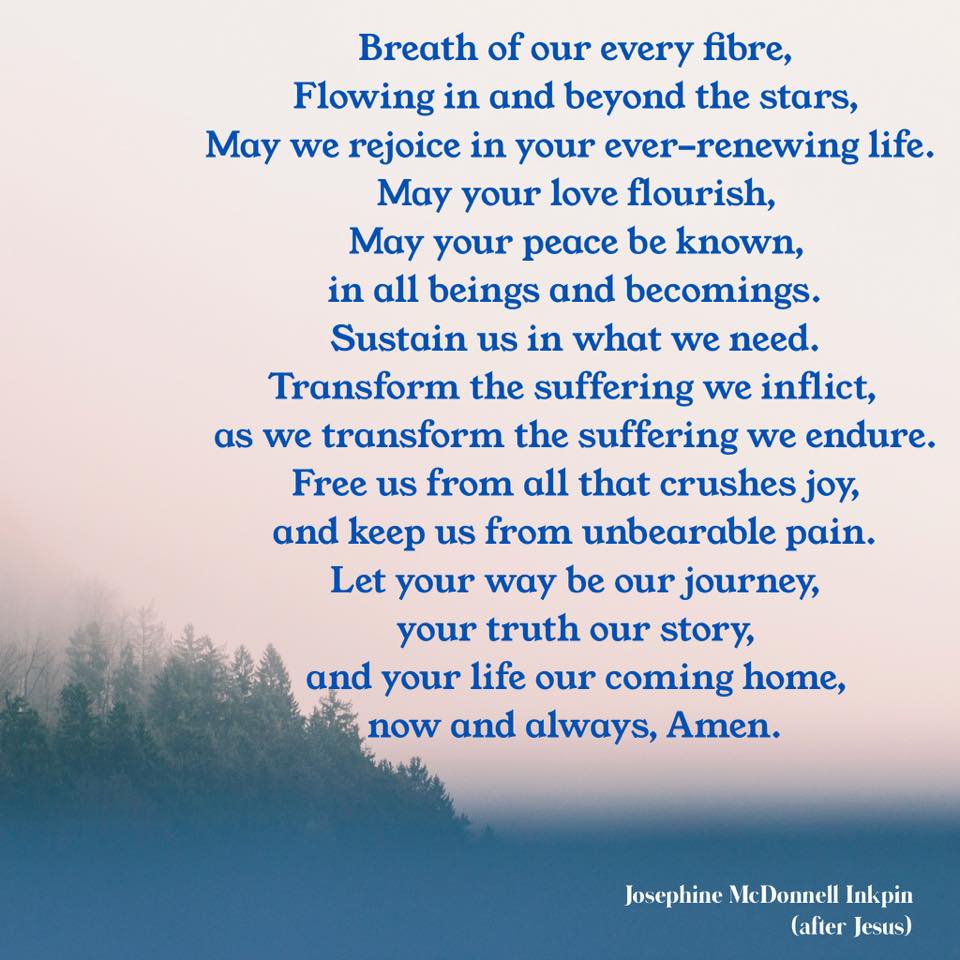
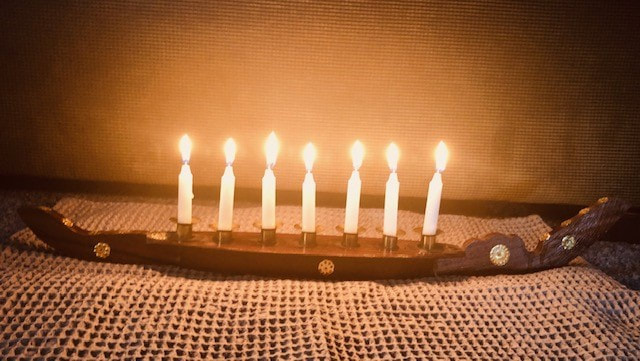
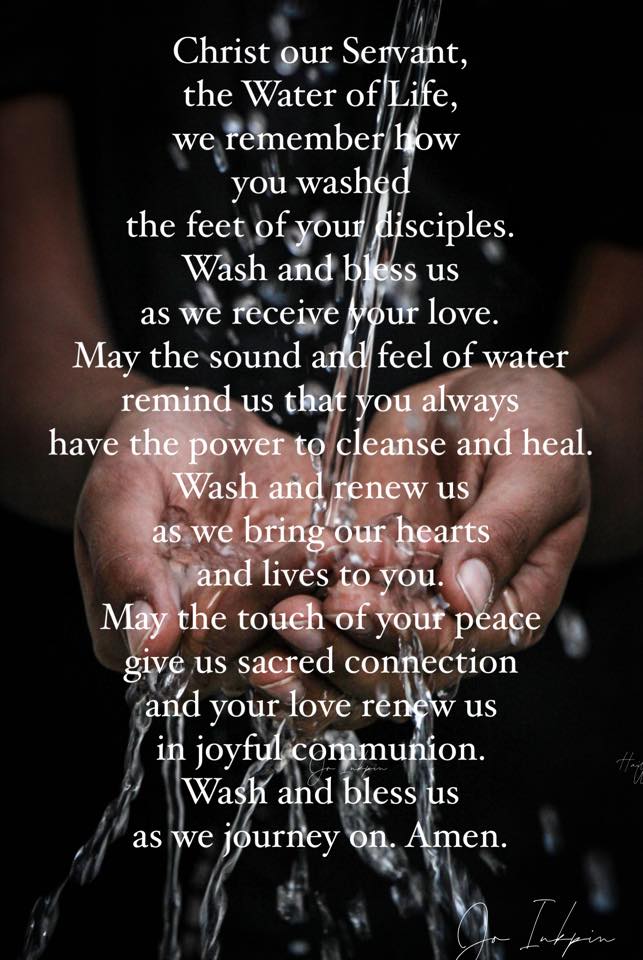
 RSS Feed
RSS Feed